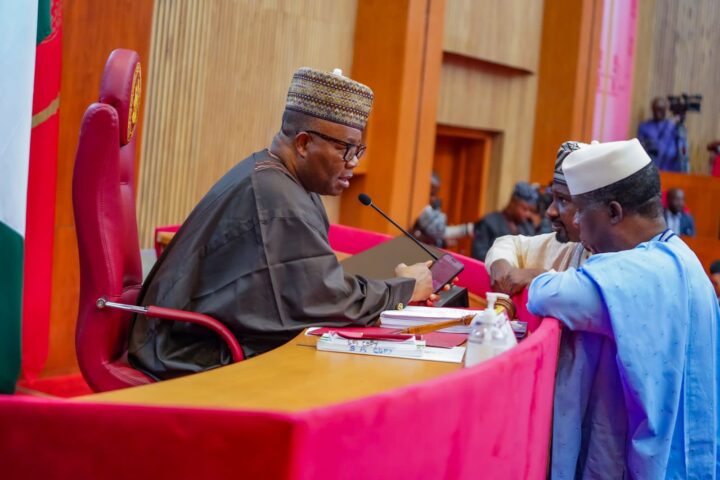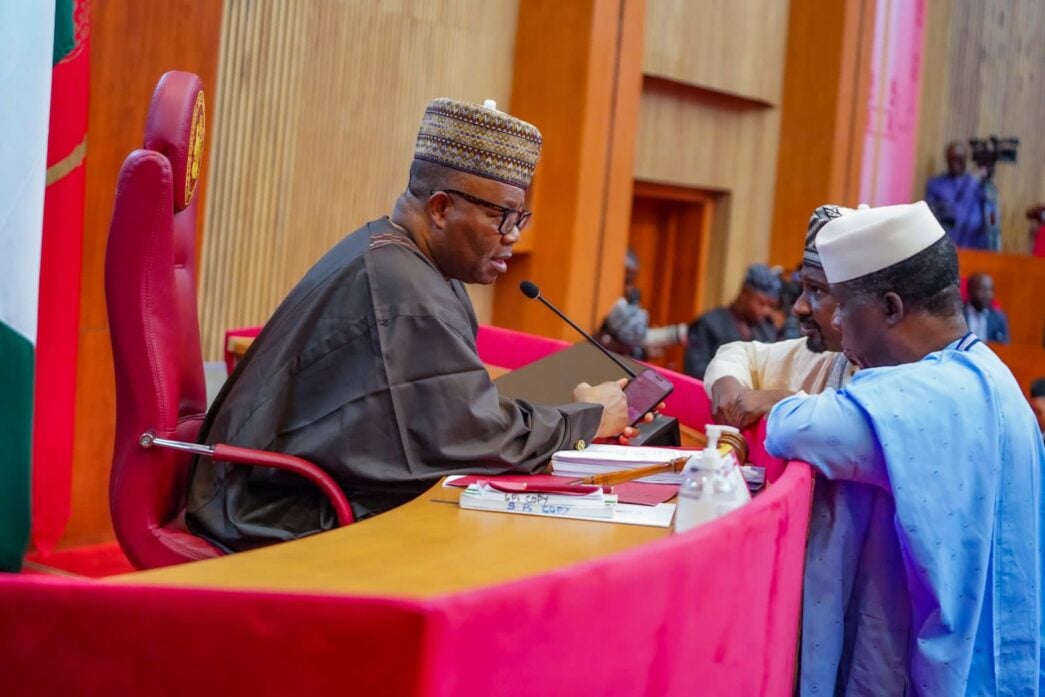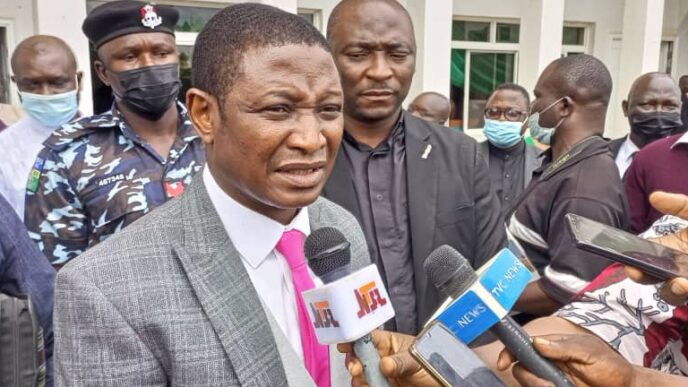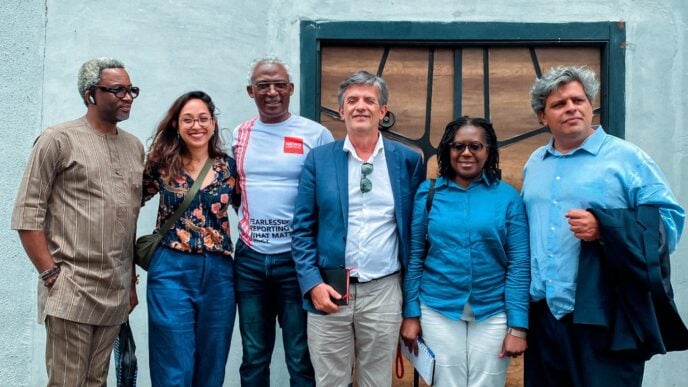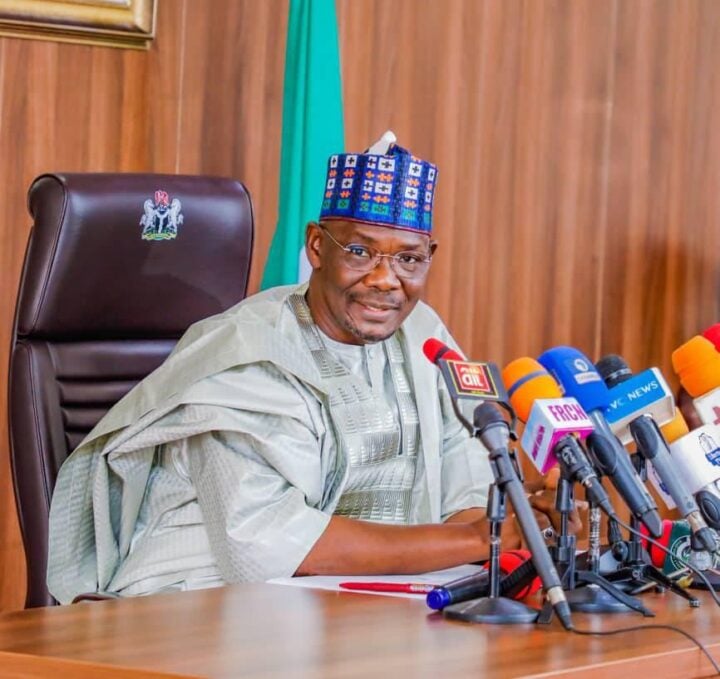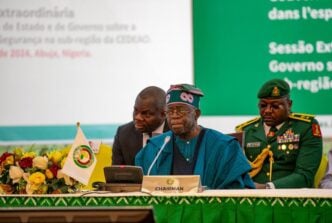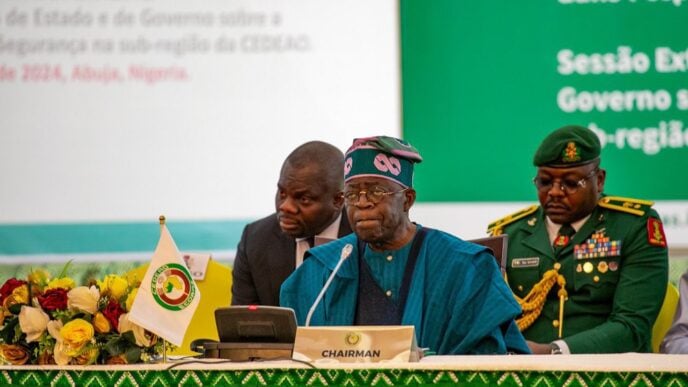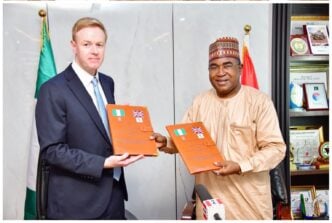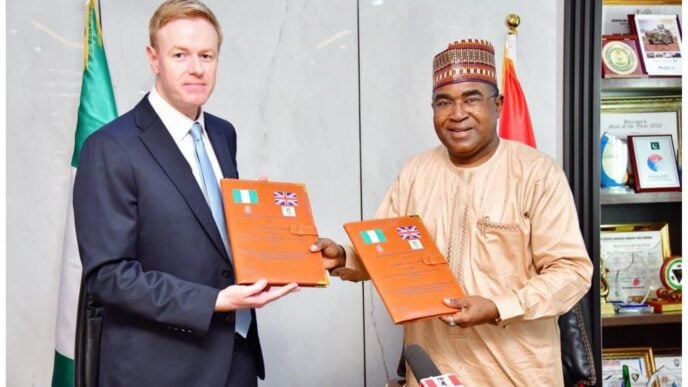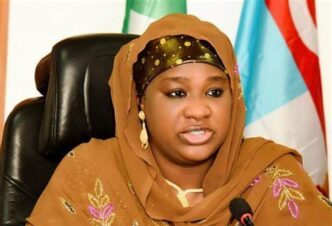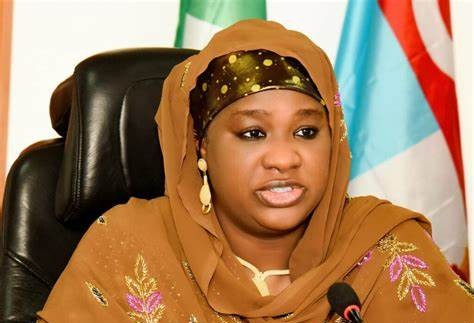Senate President Godswill Akpabio (seated) in a discussion with Barau Jibrin, deputy senate president, and Opeyemi Bamidele (in blue), senate leader | File photo
Opeyemi Bamidele, leader of the senate, has faulted claims by opposition parties that the national assembly is a rubber-stamp institution.
Bamidele, who represents Ekiti central, said the national assembly could not have held over 39 engagements with the executive on the 2024 tax reform bills if it were merely doing the bidding of the presidency.
The lawmaker spoke through a statement issued by the directorate of media and public affairs in his office.
The statement drew attention to a series of interventions carried out by the legislature “in the overriding public interest”.
Advertisement
According to Bamidele, the 10th national assembly, inaugurated on June 13, 2023, adopted a strategy of constructive engagement with the executive to address national concerns.
He said despite this approach, the legislature has faced repeated accusations from opposition parties — particularly the Peoples Democratic Party (PDP), Labour Party (LP), and New Nigeria Peoples Party (NNPP).
Bamidele said the claim had no justification and did not reflect the facts of how the legislature functions.
Advertisement
He said the tax bills were introduced in November 2024, but only passed six months later, following intense scrutiny.
“If we are actually a rubber-stamp parliamentary institution as most opposition political parties have claimed, the bills would have been passed within one week or two weeks after they were laid before us,” he said.
“In the process of passing the bills, both executive and legislative arms held over 39 engagements to trash grey areas in the Tax Reform Bills, 2024 before both chambers of the National Assembly eventually passed the bills.
“During this period, the engagements involved diverse interests and stakeholders across the federation. The tax reform bills could have been rushed within one or two weeks.
Advertisement
“But it took us six months to secure input from all critical stakeholders — civil society organisations, professional bodies, religious leaders and leaders of thoughts.
“The process includes all behind-the-scenes efforts, closed-door meetings and subtle disagreements that took place between the legislature and the executive before their passage.
“We also organised public hearings just to accommodate inputs from diverse interests.
“We extended our engagements to all captains of industries to enable us pass the tax reform bills that will stand the test of time; meet the needs of our people and ensure the overriding public interest in the exercise of our constitutional mandates.
Advertisement
“At the end of it, we found a way of resolving all issues around the tax reform bills in the overriding public interest. But people do not know all the efforts and sacrifices we made to ensure the effective delivery of public goods. They were only eager to label us a rubber stamp when the bills came from the executive.”
Bamidele said the national assembly preferred behind-the-scenes engagement over loud opposition for its own sake.
Advertisement
He also referenced the 2025 appropriation bill, which he noted was laid before the joint session of the national assembly on December 18, 2024, but was not passed until February 13, 2025.
He explained that if the legislature were a rubber stamp, the budget could have been hastily approved by the end of 2024 to maintain the January–December budget cycle.
Advertisement
“We did not give the budget back to the executive until February 2025. We did a lot of due diligence. Every committee of the National Assembly duly engaged heads of agencies to properly scrutinise the budget also in the overriding public interest,” he said.
“We are working in the interest of the people. We are always taking into consideration the need to ensure good governance in all our undertakings and the need to use legislative frameworks to promote good governance in the federation.”
Advertisement
